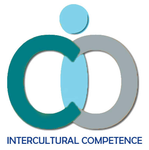
2020 International Conference on the Development and Assessment of Intercultural Competence
January 23–26, 2020
Tucson, Arizona and online
Symposium: Creative Ideas to Internationalize Community College Classes, Part I
Proposal Type
Symposium
Language of Presentation
English
Strand
Curriculum design and instruction
Summary
Three community college educators will share curricular materials that they created to add international content into their classrooms. These examples can be adapted by college educators from different academic disciplines, inspiring them to make creative changes to their curricula so as to increase the intercultural competence of their students.
Symposium Content Details
Paper 1: Exploring Afghani Culture through Women's Poetry, Miguel Fernandez Chandler (Gilbert Community College)
An educator teaching Introduction to Literature: The Veteran Experience shares his project to bridge the gap between veterans and civilians in war-torn lands. His unit lleads students to analyze women's poetry from Afghanistan in order to understand the genre, socio-political situation, Afghan women's lives, and the power resistance poetry.
Paper 2: Integrating Eastern Culture and Allowing Exploration, Azra Mahmood (South Mountain Community College)
Eastern worldview is very different from the west, however there are always way to gain understanding and perspective of life from another’s point of view. An intercultural communication professor fosters an appreciation of differences and bridges gaps by showcasing the similarities that connect humanity. Her curriculum contextualizes intercultural communication
Paper 3: Exploring Cultural Breakdown Research and Writing about Genocide, John Liffiton (Scottsdale Community College)
A visitor to Bosnia or Armenia immediately notices the lasting impact of genocide on these cultures. Thus, a U.S. composition instructor requires students to research/analyze genocide in different countries. Students learn more about global issues and challenges arising from lack of cross-cultural understanding while increasing research and writing skills.
Paper 4: Social Justice Art in Bosnia and Herzegovina, David Lloyd Bradley (Paradise Valley Community College)
In formerly Communist Bosnia and Herzegovina, artists do not have a guarantee of free speech, nor is there a viable market for art that critiques government and society, yet they continue to attempt to change the current situation and to forestall a repeat of the 1990s war. Interviews with artists in Bosnia, Serbia, Croatia and Montenegro provide insight into the artistic process as a means of changing the status quo.
Primary Presenter
John Liffiton, Scottsdale Community College
Country
US
Secondary Presenters
Azra Mahmood, South Mountain Community College
Country
US
Miguel Fernandez, Chandler-Gilbert Community College
Country
US